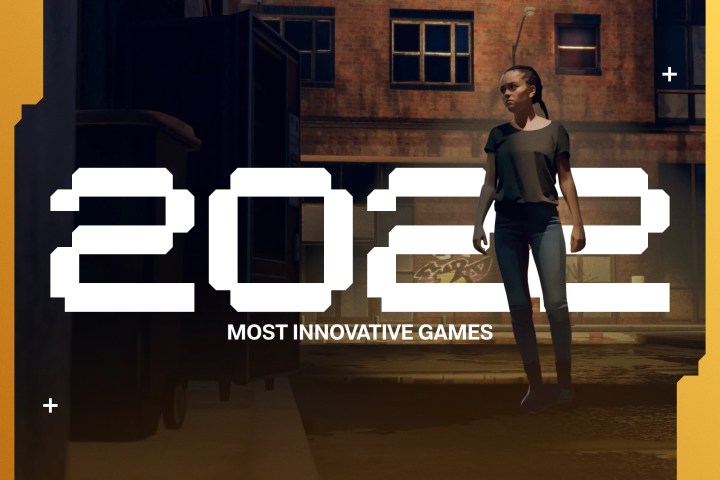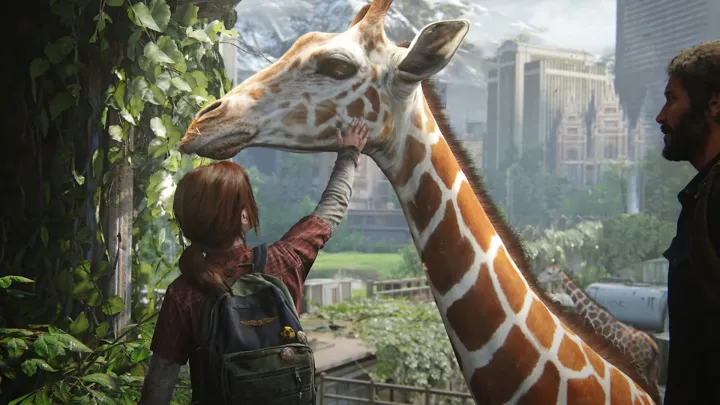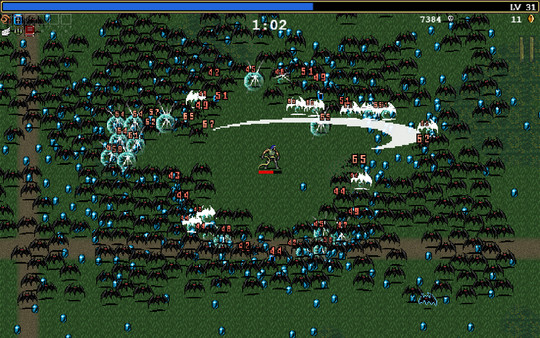
What makes the video game industry so exciting is that it’s still relatively young. Developers are still routinely discovering new ways to turn the medium on its head, redefining the idea of what a game is by bucking against trends. Though major productions like God of War Ragnarok are no doubt impressive, the most groundbreaking titles are often the less obvious ones.
That was the case in 2022, which saw developers entirely deconstructing some fundamentals about games. In some cases, that was expressed through new approaches to gameplay, creating experiences that are unlike anything I’ve ever seen from the medium. Others were even more high-level, challenging us to think about who certain projects are for. From a massive remake project to the tiniest action game, these were some of 2022’s most innovative games.
The Last of Us Part I

At first glance, The Last of Us Part I’s inclusion here may seem odd. Sony’s pricey remake was the center of controversy when it launched earlier this year, as fans argued its existence was unnecessary. However, this PlayStation 5-exclusive is incredibly important for a reason that might not be immediately obvious: accessibility. The remake brought with it a deep host of accessibility features and settings to allow more players to try the game – some potentially for the first time ever. In that sense, The Last of Us Part I is a critical work of game preservation that rethinks what a remake should do and who it should be for. It puts the focus on fixing the mistakes of gaming history by making its most important titles more inclusive experiences.
Vampire Survivors

To build something utterly unique, Vampire Survivors first had to deconstruct. Its graphics are antiquated, its controls simplistic. It’s an action game that seems utterly primitive next to something flashy like Bayonetta 3. That’s exactly what makes it special. As the wider gaming industry moves toward bigger experiences, Vampire Survivors takes a step back and focuses on what actually makes a game fun. It emphasizes impactful decisions, like weapon upgrade choices and basic movement, over complicated attack combos and complex RPG systems. One stick is all it needs to create something that feels both classic and unlike anything you’ve ever seen.
Immortality

Director Sam Barlow’s work has always thrown the conventions of gaming out the window. His debut, Her Story, simply had players scrubbing through video clips as they mentally pieced together a murder mystery. Immortality doesn’t just build on that idea; it reinvents it. Like Her Story, players look through filmed clips to try and decipher the story of missing film actress Marissa Marcel. To find those clips, players can click on characters or objects within a video clip and navigate to another clip that features what they selected. The match-cut system feels like a magic trick, making static video clips feel alive. It may not have an impact on the video game space, but it could revolutionize interactive media at a broader level.
Pentiment

At this point, we’re no strangers to games that hinge on the idea of choice. Series like Mass Effect have players choosing their path, usually letting them make blackand-white decisions that shape their character’s morality. Pentiment, a narrative RPG set in the 16th century, bucks against that idea in an important way: It does away with the concept of right and wrong entirely. Instead, it passes no judgment on any choices you make while trying to solve its murder mysteries. Each action is simply a natural part of the story, shaping the future of its fictional town of Tassing. With a decades-spanning story, Pentiment allows players to feel the actual weight of each choice they’ve made rather than inundating them with a torrent of decisions that only determine if you’re good or bad.
As Dusk Falls and We Are OFK

Plenty of modern games try to emulate TV and movies, but few dare to emulate their structures. After all, God of War Ragnarok wouldn’t sell as many copies if it was a tight three-hour epic. Two games this year took a new formal approach for games, even episodic ones that came before them: As Dusk Falls and We Are OFK. Both play like interactive TV episodes, split into five 30-minute to 60-minute-long episodes. We Are OFK even went the extra mile by releasing a new episode each week to generate conversation between fans. That approach had a notable impact on the pacing of each, allowing their respective developers to tell more contained stories within a digestible arc, rather than flooding players with information.
Pokémon Legends: Arceus

I hesitate to include Pokémon Legends: Arceus on this list because what’s innovative for the Pokémon series often feels years behind the rest of gaming. However, it’s worth highlighting the spinoff title for its willingness to turn an established series that doesn’t need to change to be profitable inside out. Arceus is filled with little gameplay innovations that completely freshen up the monster-catching experience. From its mobile game-like progression goals to the ability to simply toss a ball to catch a Pokémon, the RPG is filled with small, but impactful quality of life improvements that I imagine will set a new standard for a genre it inspired. Even the recent Pokémon Scarlet and Violet feels like old news when placed next to it.



